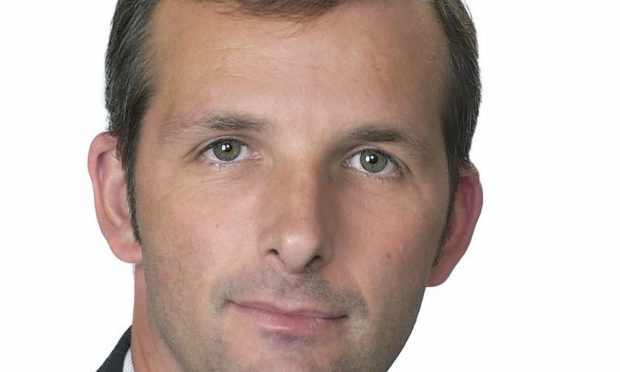Growing up in Sanday in the late 70s and 80s, I well remember the MV Orcadia steaming into Kettletoft on a Monday, Wednesday and Friday.
It was the gathering place and often a highlight of the week.
Since then, thankfully, the service has changed markedly, but one thing remains unaltered.
Orkney’s internal ferry services are still a lifeline connection that enable the communities in our smaller isles to survive and, in most cases, thrive.
Unlike the rest of Scotland, however, the councils in the Northern Isles receive only part funding from the Scottish Government to provide these services.
The annual revenue cost to Orkney Islands Council is now around £5.5million, in return for a service that is falling further and further behind equivalent services elsewhere in Scotland.
This is not sustainable and the situation is fast becoming critical.
The RMT has now confirmed its Orkney Ferries members have backed strike action, in protest at wages falling well behind those paid to counterparts in CalMac, who are funded directly by the government.
The consequences for the island communities reliant on these services are potentially disastrous.
So how has it been allowed to reach this point?
Back in June 2014, none other than the former first minister Alex Salmond swept into Orkney to declare that his government “understands the significant financial challenges that can fall on individual local authorities, and is committed to the principle of fair-funding in the provision of ferries and ferry infrastructure”.
In hindsight, we should have had Mr Salmond carve it into one of our standing stones.
Nonetheless, it was a commitment that was backed up in Holyrood by the then transport minister Derek Mackay, who told me “the provision of transport services should not place a disproportionate financial burden on any council, particularly with reference to revenue support for ferry services”.
Given that running these services accounts for 14% of Orkney Islands Council’s budget, it is fair to say this financial burden is “disproportionate”.
Time and again, Shetland MSP Tavish Scott and I have urged the Scottish Government to deliver on its promises.
And parliament agrees.
MSPs across the political spectrum recently backed a Scottish Liberal Democrat motion calling on the Scottish Government to honour its commitment to fair funding for internal ferry services in the Northern Isles.
Following the vote, expectations in Orkney and Shetland were that Mr Mackay, now the finance secretary, would use his budget to finally deliver.
Sadly, despite promises made to both island councils and the expressed will of parliament, Mr Mackay chose to abandon his promise and leave the communities who rely on these lifeline services high and dry.
He also chose to blame everyone else for his failure to deliver on the commitment he made.
Such political cynicism is reprehensible.
The government has accepted the principle of fair funding, made a firm commitment to the councils and communities and must now be made to honour that commitment.
Tavish Scott and I will look to bring forward an amendment to the Budget Bill next month, inviting parliament once again to hold the government to account. That is the least that the communities in Orkney and Shetland deserve.
More developing news on ferries, but this time Orkney’s service to and from mainland Scotland.
Readers may now question if there is anything other than ferries to talk about in Orkney, but given the genuine lifeline nature of these links it is vital that decision makers understand the importance of good quality, reliable and affordable provision.
People living in Orkney will be keenly aware that the MV Hamnavoe goes off for planned maintenance in the new year. They will also recall that back in 2013, a decision was taken to operate the Stromness-Scrabster route using a freight vessel.
Understandably, this prompted real anger locally.
In a depressing case of history repeating itself, Serco Northlink has now confirmed the MV Hamnavoe is to be replaced with a freighter, MV Heliar, for two weeks at the end of the month.
This is simply not an acceptable substitute on what is, after all, a lifeline route.
Unfortunately, the transport minister appears to have washed his hands of the issue, despite this exposing obvious flaws in the contract developed and signed by his government.
In answer to my parliamentary questions last month, he seemed entirely comfortable with a freight vessel being used.
That is not good enough and would not be tolerated on any other route.
Mr Yousaf needs to use his influence with CalMac and CMAL to identify a more suitable vessel.
This Christmas and New Year’s Day, the streets of Kirkwall once again rang to the sounds of The Ba’, as Uppies and Doonies do battle in a game dating back at least to the 1800s.
A men’s and boys’ Ba took place on both days, involving those of all ages and backgrounds and attracting large crowds of onlookers, who often appear like an extension of the scrum that forms after the heavy, leather ball is thrown up from the Mercat Cross in front of the cathedral.
Allegiances go back generations, and are determined by where you were born in Kirkwall, or how you first entered the town.
There are few, if any, rules, but the Doon-the-Gates must get the ball into the harbour basin, while the goal for the Up-the-Gates is a wall opposite the Catholic church.
Passions run high, though this is balanced by respect for the game and opponents.
The winning team gets to ‘choose’ who gets to keep the Ba, a contest that can be every bit as fierce as the game itself.
At the time of writing, I don’t know the results.
However, with both boys’ and men’s Ba’s ‘going up’ last New Year, I’m quietly hoping that the old adage holds: what goes up must come down. Game on!!
